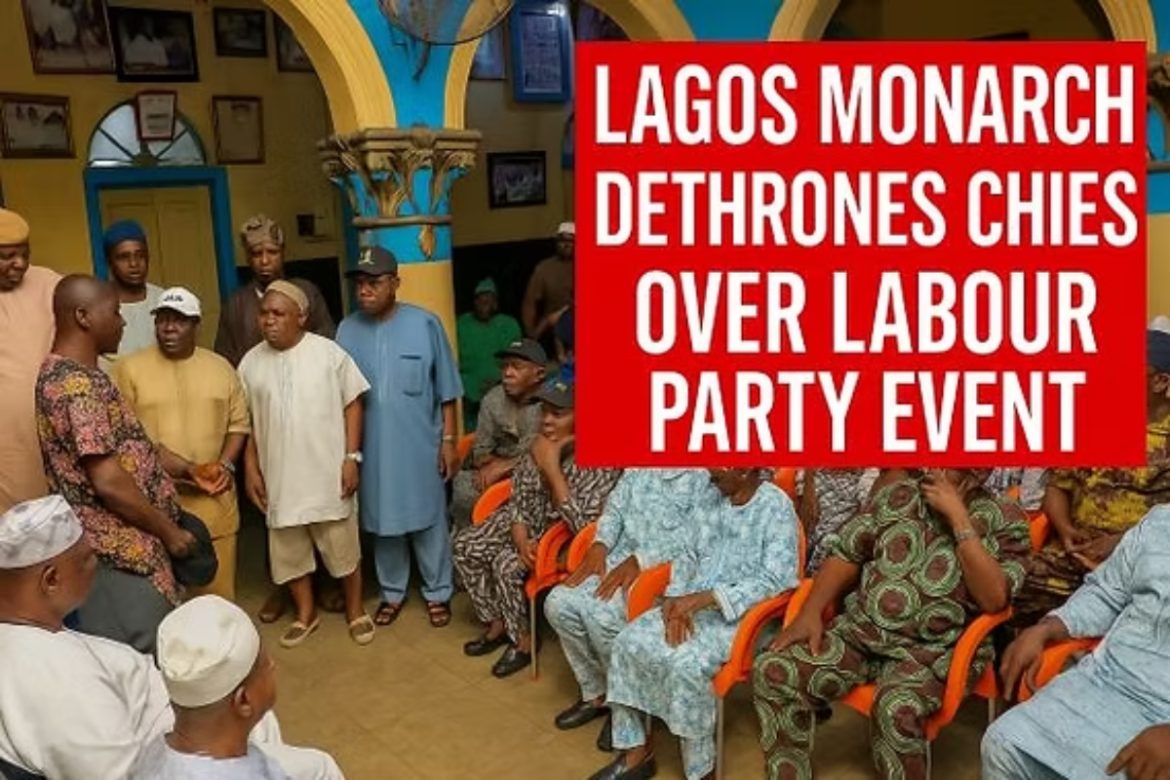In a move that has sent ripples through Lagos traditional and political circles, the Ojora of Lagos, Oba Fatai Aromire, has reportedly dethroned six high-ranking chiefs for attending the recent Labour Party campaign flag-off held in the Apapa area of the state.
According to palace insiders, the chiefs were removed from their traditional roles after they were seen at the campaign event “without clearance or allegiance” to the Ojora royal house. The campaign flag-off, which marked the formal launch of the Labour Party’s electoral activities in Lagos State, featured several prominent figures, including former presidential candidate Peter Obi, and drew a large crowd of supporters.
The dethroned chiefs whose names are yet to be officially published are said to include Baales and honorary titleholders who allegedly defied palace protocols and the long-standing principle of political neutrality expected of traditional titleholders in the kingdom.
“Their attendance was a violation of the customs that bind the Ojora chieftaincy institution. They were cautioned but chose to disregard the sanctity of the stool,” a palace official, speaking on condition of anonymity, told reporters.
The decision has, however, ignited a fierce public debate over the boundaries between cultural authority and political expression. Human rights advocates and political commentators argue that the Ojora palace may be infringing on the fundamental rights of the affected chiefs.
“This raises serious questions about freedom of association and political participation. Tradition should not be used as a tool of political suppression,” said Barrister Ayo Adegbite, a constitutional lawyer based in Lagos.
Supporters of the Ojora, however, insist that traditional chiefs are custodians of culture, not partisan actors, and their involvement in overtly political activities threatens the neutrality of the royal institution.
“When a chief wears his cap and title, he speaks for the throne. He cannot be seen to endorse a political party without the monarch’s blessing,” said Chief Moshood Adeyemi, a community elder in Apapa.
As the Labour Party gains traction in Nigeria’s commercial capital, the incident underscores the growing tension between traditional structures and modern democratic practices.
It also serves as a reminder of the delicate role traditional rulers play in a country where cultural identity and political allegiance often intersect.
Legal observers say the dethroned chiefs may seek redress in court, setting up what could become a landmark case in defining the limits of traditional authority in a democratic society.


